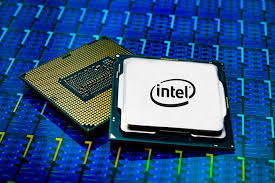
With the aim of convincing its investors that the billions of dollars that Intel had invested in the research and development for creation of 5G technology would reap benefits for the company, Intel Corp announced on Monday about new chips and partnerships.
Intel had acquired German modem maker Infineon in 2011 which allowed it to venture into the wireless data business even as the company remains the second largest chip maker in the world in terms of revenues generated. Apple Inc. is the sole major modem customer of Intel and the iPhoine maker makes use of Intel modem chips for establishing connection of the mobile handsets to mobile data networks.
However there is serve competition in the modem business where Intel has to compete with other major modem chip manufacturers such as Qualcomm Inc and MediaTek Inc and this has reduced the profit margins in the industry for Intel. This is not something that the company’s investors like because they are used to Intel clocking bigger profit margins from the sale of its flagship processor chips that are used in personal computers, laptops and in data centres.
However the company believes that its future lies in 5G networks, said Bob Swan, Intel's chief executive. It is expected that the company would roll out its 5G networks later this year and next year. The new mobile network technology would be much faster than the existing 4G networks. In this manner Intel would be able to extend its business well beyond simply selling modems to smartphone manufacturers.
Also, Intel is eyeing the auto industry as well where it would push its modems for use in connected vehicles and also target the connecting industrial equipment manufacturers for use of its modems. Swan said that the company would also try to get into businesses related to a variety of networking gears by selling its other chips – which would include its processors and the so-called programmable chips which are now under its portfolio since the acquisition of Altera Inc in 2016 to this segment.
"Where investors have been most anxious is, we were catching up for a while. Catching up, in their minds, means not making any money," Swan said at a press event in Palo Alto, California last week just before the company was to participate in the Mobile World Congress conference in Spain this week. "Now we're at a stage where we believe we have products that are as good as anybody in the industry's as we move into 5G."
Agreements have also been inked by Intel with network gear makers Fibocom Wireless Inc, Arcadyan Technology Corp and others under which the so-called modules and gateways woiudl be helped to establish connection between industrial equipment connect and the 5G networks with the use of Intel modem chips. The company said that its new programmable chips would rival those from Xilinx Inc – which has seen an increase in its revenues in the most recent quarter because of increase in demand for the chips for 5G networks.
(Source:www.moneycontrol.com)
Intel had acquired German modem maker Infineon in 2011 which allowed it to venture into the wireless data business even as the company remains the second largest chip maker in the world in terms of revenues generated. Apple Inc. is the sole major modem customer of Intel and the iPhoine maker makes use of Intel modem chips for establishing connection of the mobile handsets to mobile data networks.
However there is serve competition in the modem business where Intel has to compete with other major modem chip manufacturers such as Qualcomm Inc and MediaTek Inc and this has reduced the profit margins in the industry for Intel. This is not something that the company’s investors like because they are used to Intel clocking bigger profit margins from the sale of its flagship processor chips that are used in personal computers, laptops and in data centres.
However the company believes that its future lies in 5G networks, said Bob Swan, Intel's chief executive. It is expected that the company would roll out its 5G networks later this year and next year. The new mobile network technology would be much faster than the existing 4G networks. In this manner Intel would be able to extend its business well beyond simply selling modems to smartphone manufacturers.
Also, Intel is eyeing the auto industry as well where it would push its modems for use in connected vehicles and also target the connecting industrial equipment manufacturers for use of its modems. Swan said that the company would also try to get into businesses related to a variety of networking gears by selling its other chips – which would include its processors and the so-called programmable chips which are now under its portfolio since the acquisition of Altera Inc in 2016 to this segment.
"Where investors have been most anxious is, we were catching up for a while. Catching up, in their minds, means not making any money," Swan said at a press event in Palo Alto, California last week just before the company was to participate in the Mobile World Congress conference in Spain this week. "Now we're at a stage where we believe we have products that are as good as anybody in the industry's as we move into 5G."
Agreements have also been inked by Intel with network gear makers Fibocom Wireless Inc, Arcadyan Technology Corp and others under which the so-called modules and gateways woiudl be helped to establish connection between industrial equipment connect and the 5G networks with the use of Intel modem chips. The company said that its new programmable chips would rival those from Xilinx Inc – which has seen an increase in its revenues in the most recent quarter because of increase in demand for the chips for 5G networks.
(Source:www.moneycontrol.com)














